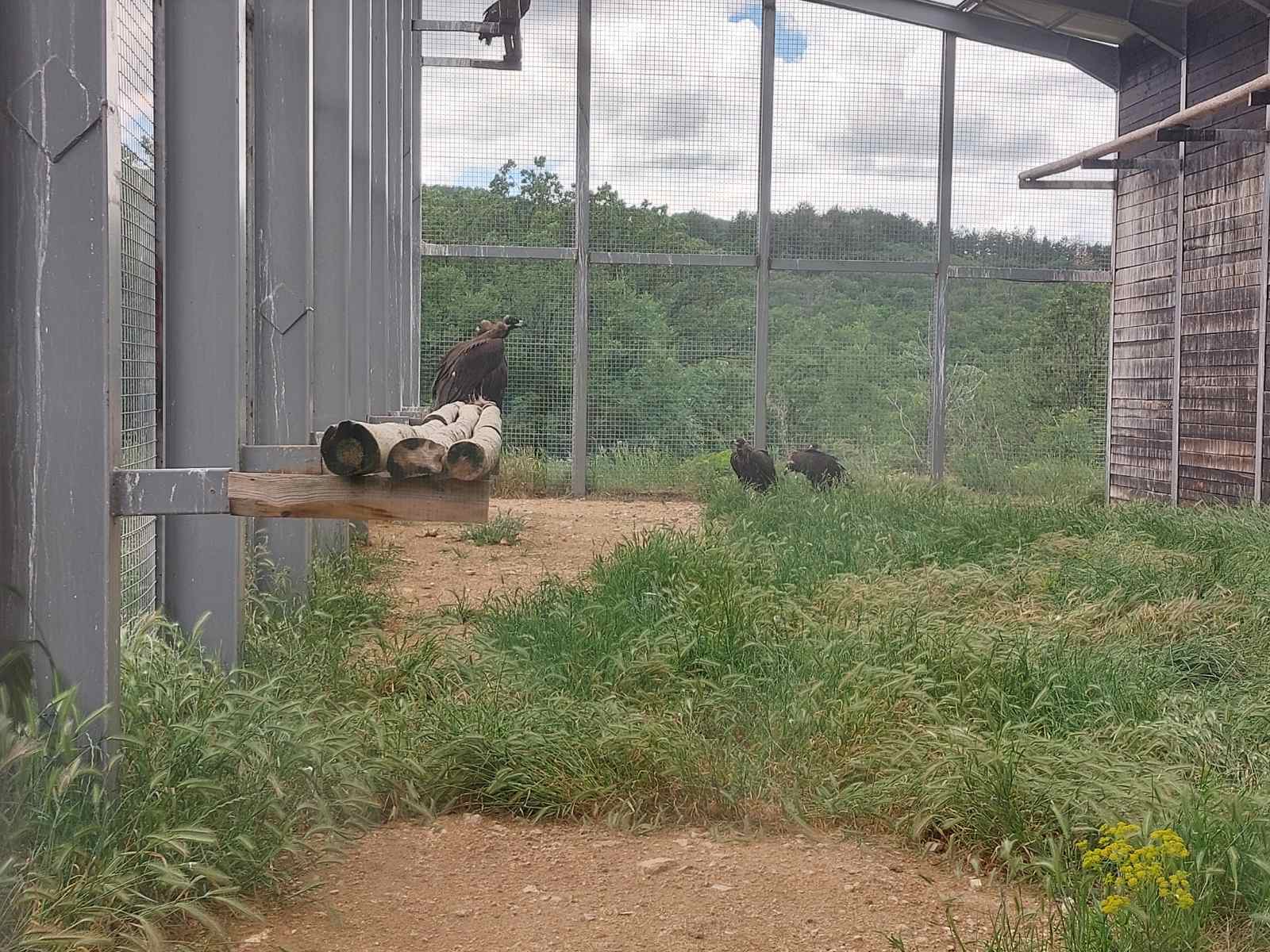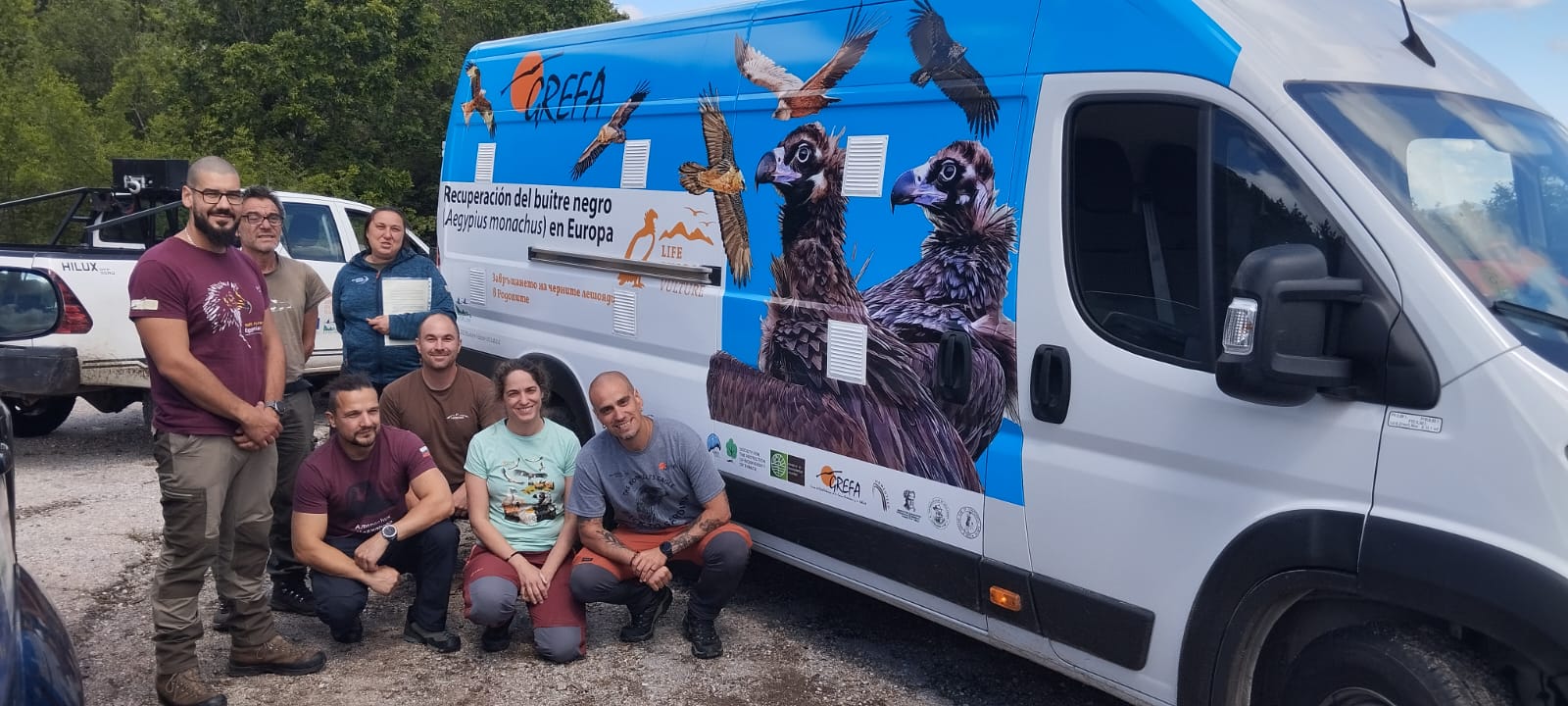Seven more Cinereous vultures travelled an impressive 3,300 kilometers from Spain to the Eastern Rhodopes to become part of the ambitious LIFE project ” Restoration of the Cinereous vulture population and trophic chain in the Bulgarian-Greek cross-border region“, to bring back this majestic species in Bulgaria.

Their arrival marks another step in the efforts of the Bulgarian Society for the Protection of Birds (BSPB) and the Rewilding Rhodopes Foundation, working on reintroduction program since 2022. The total number of black vultures released in the region has now reached 33 birds, with the goal of forming a colony in Bulgaria.
The long 3,300-kilometer journey of the rare species across almost the entire length of Europe took several days, and face some challenges along the way. After a three-day trip organized by the Spanish organization GREFA and its partners in Bulgaria, the birds have now been placed in a special adaptation aviary where they will spend several months adapting to the local conditions. The vultures are expected to be released in October. A team of experts from the Bulgarian Society for the Protection of Birds (BSPB) will monitor the birds and will be with them closely in the coming days to ensure that the vultures’ adaptation is proceeding normally and that they are in good condition.

“Just three years after the reintroduction of the Cinereous vulture in the Bulgarian part of the Eastern Rhodopes began, we have already recorded 4 pairs this year, one of which has started to breed. This shows that our efforts are headed in the right direction and with the support of the local community we hope for even better results in the next breeding season,” shared Dr. Dobromir Dobrev from the BSPB.
The Cinereous vulture is one of the rarest birds in the Balkans. In Bulgaria, the species was widespread in the past, but about 25 years ago it disappeared as a breeder. In the 1980s, there were data on several pairs in the Eastern Rhodopes, with the last permanent breeding pair being documented near the Studen Kladenets dam in 1993. The last natural colony of Cinereous vultures in the Balkans is located in the Dadia National Park in Greece. Although the colony numbers 44 pairs, its limited size and population growth rates mean that their natural displacement is unlikely. For this reason, in the last few years, the teams of the Bulgarian Black Vulture Society and Rewilding Rhodopes Foundation have launched an initiative for the return of the species. Now, thanks to international cooperation, these birds are flying freely in the Rhodopes again.
The reintroduction activities are part of the LIFE project, ” Restoration of the Cinereous vulture population and trophic chain in the Bulgarian-Greek cross-border region“, implemented on the Bulgarian side by the Bulgarian Society for the Protection of Birds in collaboration with Rewilding Rhodopes Foundation. The project (No. 101148254 — LIFE23-NAT-BG-LIFE Rhodope Vulture) is co-financed by the European Union’s LIFE program and Rewilding Europe.